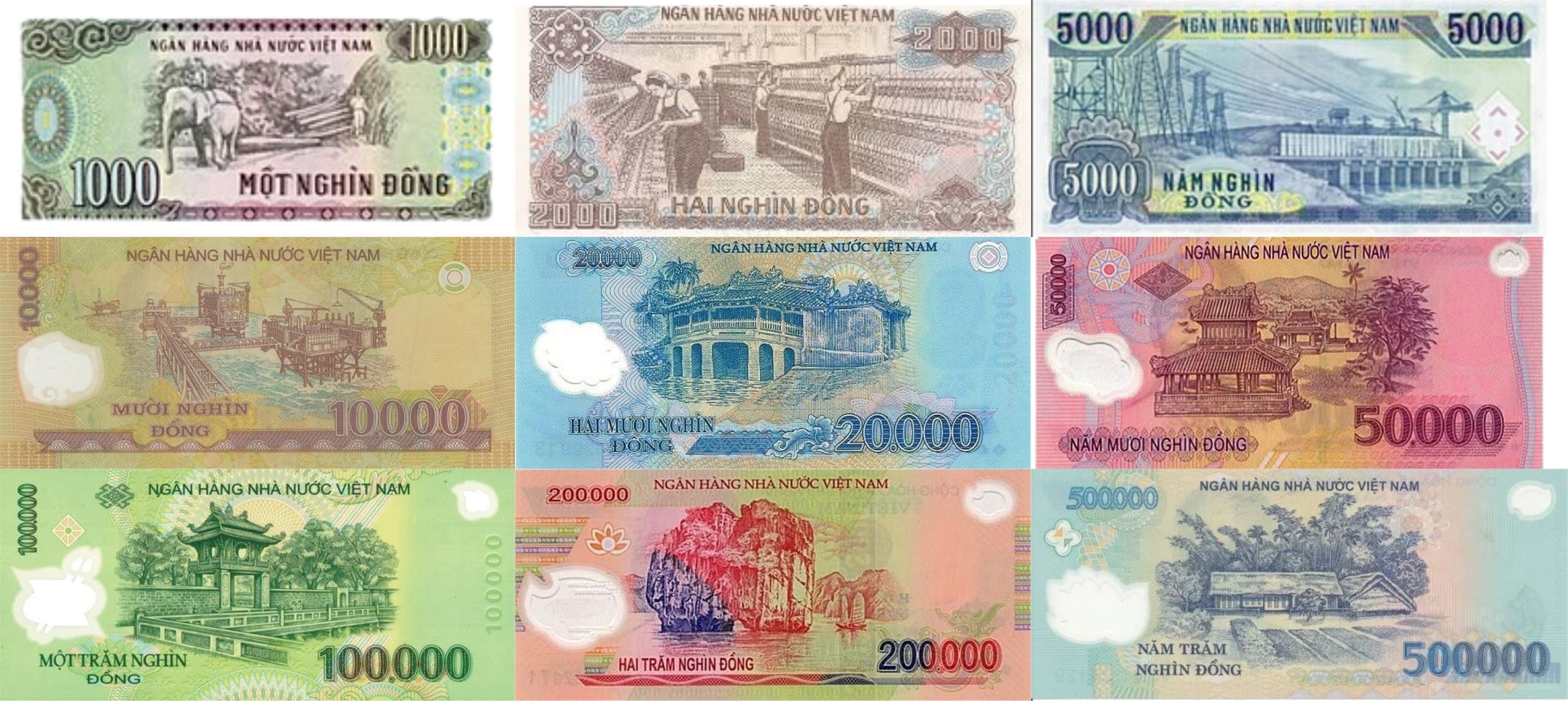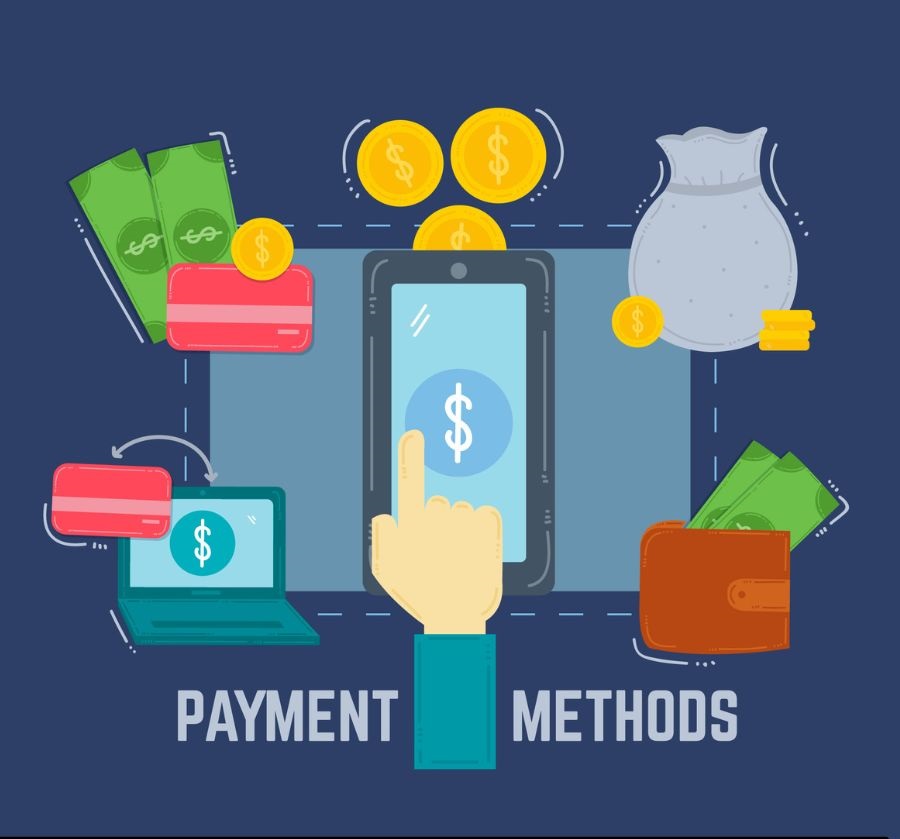Vietnam Currency Guide 2025: Exchange Rates, Tips & What to Avoid
Отдых у моря во Вьетнаме? Легко!
1. What Is the Official Currency in Vietnam?
Vietnam’s official currency now is the Vietnamese đồng (VND). It’s not commonly traded outside of Vietnam, so you should exchange once you arrive. The symbol is ₫, written as VND.
2. Denomination of Vietnam banknotes
Vietnam uses paper banknotes only - not coin. Coins were phased out many years ago.
All Vietnamese banknotes feature a portrait of President Ho Chi Minh on one side. The reverse side typically depicts famous landmarks, cultural symbols, or scenes representing Vietnam’s rich history and heritage.
Vietnamese currency is printed on two types of material: Paper notes, which are more fragile and prone to tearing, include denominations of ₫1,000, ₫2,000, and ₫5,000. Polymer notes, which are more durable and waterproof, include ₫10,000, ₫20,000, ₫50,000, ₫100,000, ₫200,000, and ₫500,000.
Some notes look similar in color—especially the ₫20,000 and ₫500,000 — so always double-check before paying.


Denomination of Vietnam banknotes
Although ₫500 paper notes are still technically in circulation, they are rarely used in daily transactions. Instead, many people keep them as good luck charms.
3. Exchange Rates and Currency Tips
Before exchanging money, it’s helpful to know the latest exchange rates. Below is a quick reference table showing how major global currencies convert to the Vietnamese đồng (VND) as of May 23, 2025. These rates are sourced from trusted financial platforms and may vary slightly depending on where and how you exchange your money.
Before exchanging money, need to know the latest exchange rates. The table below shows how major global currencies convert to the Vietnamese đồng (VND) 2025 (Rates may vary slightly depending on where and how you exchange your money).
| Currency | Code | Exchange Rate (1 unit = VND) |
|---|---|---|
| US Dollar | USD | 25,972.5 |
| Euro | EUR | 29,411.3 |
| British Pound | GBP | 34,838.0 |
| Japanese Yen | JPY | 176.985 |
| Australian Dollar | AUD | 16,710.0 |
| Singapore Dollar | SGD | 20,124.1 |
| Thai Baht | THB | 779.0 |
| South Korean Won | KRW | 18.829 |
| Chinese Yuan | CNY | 3,605.9 |
| Canadian Dollar | CAD | 18,780.0 |
4. How to pay in Vietnam

Payment in Vietnam is not difficult
Cash is the most common way to pay in Vietnam, especially at local markets, small shops, and street food stalls. Carry small bills and double-check your change, as some notes look similar.
Credit and debit cards (Visa, Mastercard) are widely accepted in urban areas such as hotels, malls, and upscale restaurants. Some places may charge a small fee for card payments. When traveling to smaller towns or rural areas, it’s best to carry cash, because many places there do not accept card payments.
Mobile apps like Momo, ZaloPay, and VNPay are popular in cities, but they require a Vietnamese phone number. Apple Pay and Google Pay work at some international chains.
Tipping is not expected but appreciated — 20,000 to 50,000 VND is a kind gesture (depend on the service).
5. Currency exchange locations in Vietnam
You can exchange foreign currency at banks, licensed currency exchange counters, and some reputable gold or jewelry shops, especially in major cities like Hanoi, Ho Chi Minh City, and Da Nang. Banks generally offer the most reliable and transparent rates. Avoid exchanging money at airports unless necessary, as rates there are usually less favorable. Always bring clean, undamaged bills for a smooth exchange process.

Bank - a reputable place to exchange foreign currency
You can exchange foreign currency at banks, licensed currency exchange counters, and some reputable gold or jewelry shops, especially in major cities like Hanoi, Ho Chi Minh City, and Da Nang. Banks generally offer the most reliable and transparent rates. Avoid exchanging money at airports unless necessary, as rates there are usually less favorable. Always bring clean, undamaged bills for a smooth exchange process.

Другие
How to Extend a Work Permit for Foreigners in Vietnam 2025?
Блог12/6/2025 08:40As of the latest legal updates from Decree No. 70/2023/NĐ-CP, effective from September 18, 2023, businesses and foreign workers must comply with new regulations when applying for Work Permit extension. This post is a detailed guide to the Work Permit extension process in Vietnam, applicable for 2025–2026.
Top Reasons to Visit Vietnam in 2025
Блог27/5/2025 09:16Vietnam is a country full of surprises. From its breathtaking landscapes to its warm-hearted people, Vietnam offers something special for every kind of traveler. Whether you're looking for adventure, relaxation, culture, or food—Vietnam has it all. Here are 10 simple reasons why you should add Vietnam to your travel list.
Where to Go in Hanoi for an Unforgettable Cultural Journey?
Блог26/5/2025 11:40Discover the best traditional craft villages near Hanoi, where you can explore handmade incense, ceramics, silk, soy sauce, and more. A unique cultural journey through Vietnam’s timeless artisan heritage awaits!




